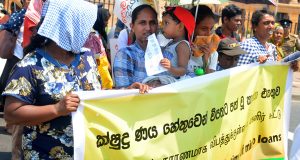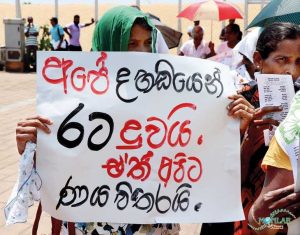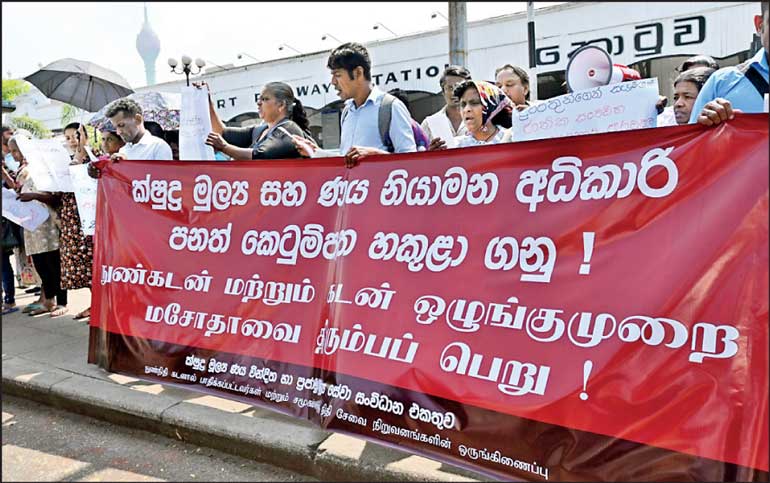This week, the Collective of Microfinance victims and community savings and credit organizations filed three petitions challenging the proposed Microfinance and Credit Regulatory Authority Bill. The petitions, represented by various counsels, express worries about the bill .

They point out that exempting licensed finance entities from regulatory oversight, intrusive authority functions violating community autonomy, and overlooking the diversity in the financial landscape for low-income individuals. Petitioners argue that the bill, lacking legal enforcement, fails to protect microfinance victims, potentially criminalizing debt issues. Women affected by microfinance have protested for years, urging government intervention in the ongoing crisis.
Microfinance is defined by the Central bank of Sri Lanka as “provision of financial services to low income people” by the Consultative Group to Assist the Poor (CGAP). It brings credit, savings and other essential financial services to people who are too poor to be served by regular banks, mainly because they are unable to offer sufficient collateral. Microfinance is expected to expand and improve income generation activities and capacities of low income persons. Headline: Microfinance in Sri Lanka: Empowerment Turned Debt Trap for Impoverished Women
Relentless Debt Calycle.
Microfinance, once a tool for empowering rural women, has evolved into a predatory lending system, trapping many like Renuka Kumari and Sriyani Kusumalatha in a relentless debt cycle. Despite government attempts to regulate microfinance institutions (MFIs) and provide debt relief, numerous women face harassment from debt collectors, leading to severe consequences.

In Polonnaruwa, Renuka and her children live in constant fear of MFI debt collectors who visit her home, even at night, demanding repayments. The shift from an empowering microfinance industry to profit-driven commercialization since 2010 has resulted in a problematic scenario, with approximately 172 suicides attributed to the microfinance debt trap.
The report, ‘Debt at my Doorstep,’ by the Centre for Poverty Analysis (CEPA), emphasizes that obtaining loans for consumption rather than investment or business ventures is the core issue. Despite government relief efforts, women like Renuka and Kusumalatha continue to face harassment, raising questions about the effectiveness of the measures.
The study also highlights the negative impact on children witnessing the verbal abuse and trauma inflicted upon their mothers by debt collectors. Additionally, the report reveals a concerning link between microcredit indebtedness and the migration of women abroad for work, as loans push women to seek employment opportunities overseas.
The vicious cycle continues as women, despite dire situations, find themselves borrowing more to pay off previous loans. The role of traditional money lenders has become more significant, further trapping women in a cycle of debt with little improvement in livelihoods. The report calls for renewed attention to the social mission of microfinance and the protection of vulnerable borrowers







